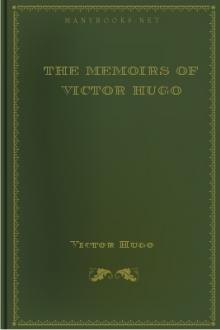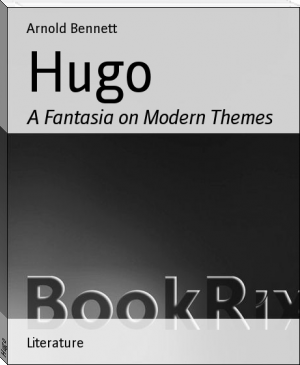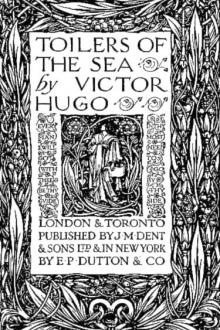Hilda Lessways by Arnold Bennett (some good books to read txt) 📕

- Author: Arnold Bennett
Book online «Hilda Lessways by Arnold Bennett (some good books to read txt) 📕». Author Arnold Bennett
"Oh! I'm all right!" he said lightly, and did not move.
"You needn't be afraid of me!" She was hurt that he had refused her invitation to approach her. The next instant she would have given her tongue not to have uttered those words. But she was in such a tingling state of extreme sensitiveness as rendered it impossible for her to exercise a normal self-control.
Scarcely conscious of what she did, she asked him the time. He struck a match to look at his watch. The wind blew the match out, but she saw his wistful face, with his disordered hair under the hat. It had the quality of a vision.
He offered to get a light in the house, but abruptly she said good night.
Then they were shaking hands--she knew not how or why. She could not loose his hand. She thought: "Never have I held a hand so honest as this hand." At last she dropped it. They stood silent while a trap rattled up Trafalgar Road. It was as if she was bound to remain moveless until the sounds of the trap had died away.
She walked proudly out into the rain. He called to her: "I say, Miss Lessways!" But she did not stop.
In a minute she was back again in Lane End House.
"That you?" Tom's voice from the breakfast-room!
"Yes," she answered clearly. "I've put the chain on. Good night."
"Good night. Thanks."
She ascended the stairs, smiling to herself, with the raindrops fresh on her cheek. In her mind were no distinct thoughts, either concerning the non-virtue of belief, or the new epoch, or Edwin Clayhanger, or even the strangeness of her behaviour. But all her being vibrated to the mysterious and beautiful romance of existence.
CHAPTER VII THE NEXT MEETING
I
For several days the town of Bursley was to Hilda simply a place made perilous and redoubtable by the apprehension of meeting Edwin Clayhanger accidentally in the streets thereof. And the burden of her meditations was: "What can he have thought of me?" She had said nothing to anybody of the deliberately-sought adventure in the garden. And with the strangest ingenuous confidence she assumed that Edwin Clayhanger, too, would keep an absolute silence about it. She had therefore naught to fear, except in the privacy of his own mind. She did not blame herself--it never occurred to her to do so--but she rather wondered at herself, inimically, prophesying that one day her impulsiveness would throw her into some serious difficulty. The memory of the night beautifully coloured her whole daily existence. In spite of her avoidance of the town, due to her dread of seeing Clayhanger, she was constantly thinking: "But this cannot continue for ever. One day I am bound to meet him again." And she seemed to be waiting for that day.
It came with inevitable quickness. The last day but one of June was appointed throughout the country for the celebration of the Centenary of Sunday Schools. Neither Hilda nor any of the Orgreave children had ever seen the inside of a Sunday School; and the tendency up at Lane End House was to condescend towards the festival as towards a rejoicing of the proletariat. But in face of the magnitude of the affair, looming more enormous as it approached, this attitude could not be maintained. The preparations for the Centenary filled newspapers and changed the physiognomy of towns. And on the morning of the ceremonial service, gloriously flattered by the sun, there was candid excitement at the breakfast-table of the Orgreaves. Mr. Orgreave regretted that pressure of work would prevent him from seeing the fun. Tom was going to see the fun at Hanbridge. Jimmie and Johnnie were going to see the fun, but they would not say where. The servants were going to see the fun. Charlie had returned to London. Alicia wanted to go and see the fun, but as she was flushed and feverish, Mrs. Orgreave forbade and decided to remain at home with Alicia. Otherwise, even Mrs. Orgreave would have gone to see the fun. Hilda and Janet apparently hesitated about going, but Mr. Orgreave, pointing out that there could not under the most favourable circumstance be another Centenary of Sunday Schools for at least a hundred years, sarcastically urged them to set forth. The fact was, as Janet teasingly told him while she hung on his neck, that he wished to accentuate as much as possible his own martyrdom to industry. Were not all the shops and offices of the Five Towns closed? Did not every member of his family, save those detained by illness, attend the historic spectacle of the Centenary? He alone had sacrificed pleasure to work. Thus Janet's loving, ironic smiles foretold, would the father of the brood discourse during the next few days.
II
Hilda and Janet accordingly went down a be-flagged and sunlit Trafalgar Road together. Janet was wearing still another white dress, and Hilda, to her marked relief, had abandoned black for a slate-coloured frock made by a dressmaker in Bleakridge. It was Mrs. Orgreave herself who had first counselled Hilda, if she hated black, as she said she did, to abandon black. The entire family chorus had approved.
The risk of encountering Edwin Clayhanger on that day of multitudes was surely infinitesimal. Nevertheless, in six minutes the improbable had occurred. At the corner of Trafalgar Road and Duck Square Janet, attracted by the sight of banners in the distance, turned to the left along Wedgwood Street and past the front of Clayhanger's shop. Theoretically shops were closed, but one shutter of Clayhanger's was down, and in its place stood Edwin Clayhanger. Hilda felt her features stiffening into a sort of wilful and insincere hostility as she shook hands. Within the darkness of the shop she saw the figure of two dowdy women--doubtless the sisters of whom Janet had told her; they disappeared before Janet and Hilda entered.
"It has happened! I have seen him again!" Hilda said to herself as she sat in the shop listening to Janet and to Edwin Clayhanger. It appeared likely that Edwin Clayhanger would join them in the enterprise of witnessing the historic spectacle.
A few minutes later everybody was startled by the gay apparition of Osmond Orgreave swinging his cane. Curiosity had been too much for industriousness, and Osmond Orgreave had yielded himself to the general interest.
"Oh! Father!" cried Janet. "What a deceitful thing you are!"
"Only a day or two ago," Hilda was thinking, "I had never even heard of him. And his shop seemed so strange and romantic to me. And now I am sitting in his shop like an old friend. And nobody suspects that he and I have had a secret meeting!" The shop itself seemed to be important and prosperous.
Mr. Orgreave, having decided for pleasure, was anxious to find it at once, and, under his impatience, they left the shop. Janet went out first with her gay father. Edwin Clayhanger waited respectfully for Hilda to pass. But just as she was about to step forth she caught sight of George Cannon coming along the opposite side of Wedgwood Street in the direction of Trafalgar Road; he was in close conversation with another man. She kept within the shelter of the shop until the two had gone by. She did not want to meet George Cannon, with whom she had not had speech since the interview at the Cedars; he had written to her about the property sales, and she had replied. There was no reason why she should hesitate to meet him. But she wished not to complicate the situation. She thought: "If he saw me, he'd come across and speak to me, and I might have to introduce him to all these people, and goodness knows what!" The contretemps caused her heart to beat.
When they emerged from the shop Janet, a few yards ahead with Mr. Orgreave, was beckoning.
III
Hilda stood on a barrel by the side of Edwin Clayhanger on another barrel. There, from the top of St. Luke's Square, they surveyed a vast rectangular carpet of upturned faces that made a pattern of pale dots on a coloured and black groundwork. Nearly all the children of Bursley, thousands upon thousands, were massed in the Square, wedged in tight together, so that there seemed not to be an inch of space anywhere between the shuttered shop fronts on the east of the Square and the shuttered shop fronts on the west of the Square. At the bottom of the Square a row of railway lorries were crammed with tiny babes--or such they appeared--toddlers too weak to walk in processions. At the top of the Square a large platform full of bearded adults rose like an island out of the unconscious sea of infants. And from every window of every house adults looked down in safe ease upon that wavy ocean over which banners gleamed in the dazzling and fierce sunshine.
She might have put up her sunshade. But she would not do so. She thought: "If all those children can stand the sun without fainting, I can!" She was extraordinarily affected by the mere sight of the immense multitude of children; they were as helpless and as fatalistic as sheep, utterly at the mercy of the adults who had herded them. There was about them a collective wistfulness that cut the heart; to dwell on the idea of it would have brought her to tears. And when the multitude sang, so lustily, so willingly, so bravely, pouring forth with the brass instruments a volume of tone enormous and majestic, she had a tightness of the throat that was excrutiating. The Centenary of Sunday Schools was quite other than she had expected; she had not bargained for these emotions.
It was after the hymn "There is a fountain filled with blood," during the quietude of a speech, that Edwin Clayhanger, taking up an evangelistic phrase in the speech, whispered to her:
"More blood!"
"What?" she asked, amazed by his ironical accent, which jarred on her mood, and also by his familiar manner of leaning towards her and dropping the words in her ear.
"Well," he said. "Look at it! It only wants the Ganges at the bottom of the Square!"
Evidently for Edwin Clayhanger all religions were equally heathenish! She was quite startled out of her amazement, and her response was an almost humble entreaty not to make fun. The next moment she regretted that she had not answered him with sharp firmness. She was somewhat out of humour with him. He had begun by losing sight of Mr. Orgreave and Janet--and of course it was hopeless to seek for them in those thronging streets around St. Luke's Square. Then he had said to her, in a most peculiar tone: "I hope you didn't catch cold in the rain the other night," and she had not liked that. She had regarded it as a fault in tact, almost as a sexual disloyalty on his part to refer at all to the scene in the garden. Finally, his way of negotiating with the barrel man for the use of two barrels had been lacking, for Hilda, in the qualities of largeness and masterfulness; any one of the Orgreave boys would, she was sure, have carried the thing off in a more worldly manner.
The climax of the service came with the singing of "When I survey the wondrous Cross." The physical effect of it on Hilda was nearly overwhelming. The terrible and sublime words seemed to surge upon her charged with all the multitudinous significance of the crowd. She was profoundly stirred,





Comments (0)